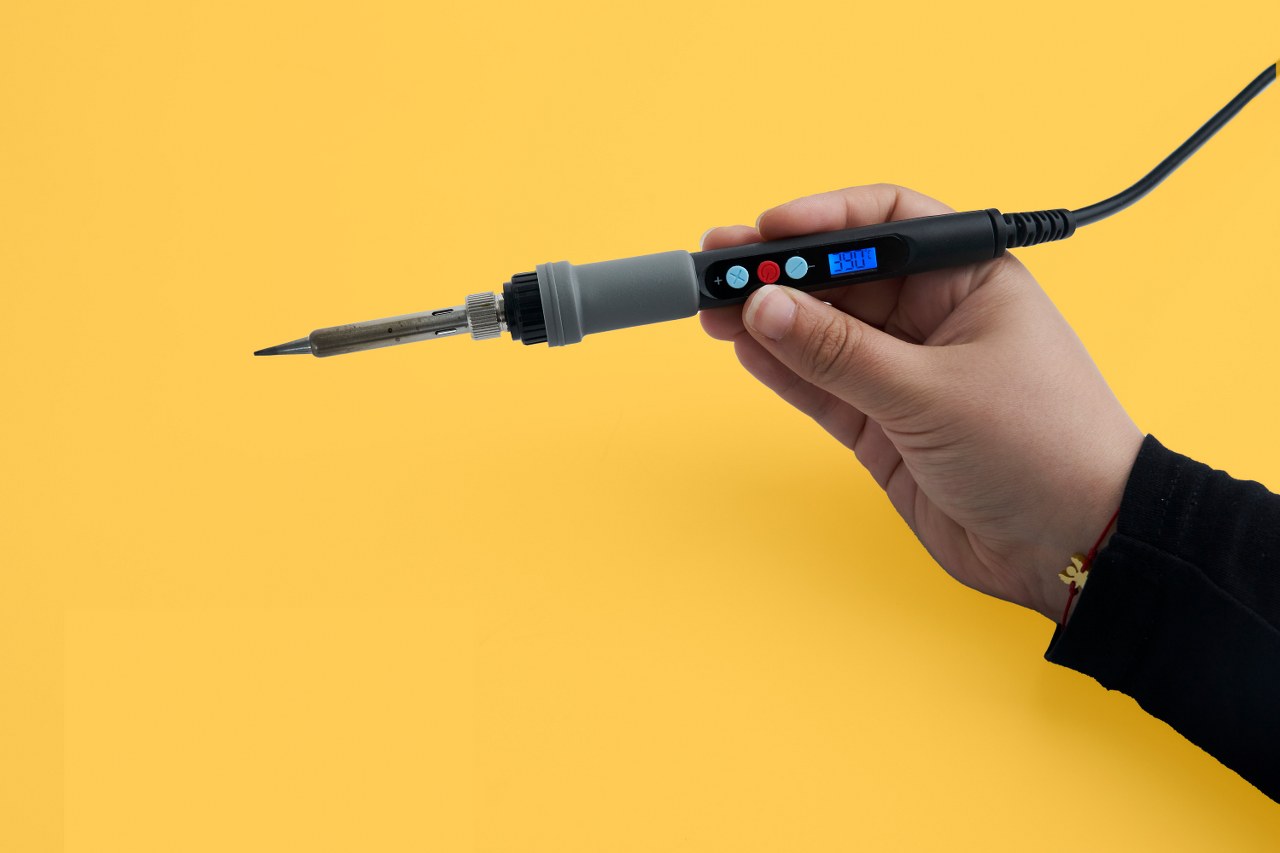How to solder?
The first thing you'll do as part of the Spencer assembly process is soldering!
Have you ever done that before? If your answer is no, we suggest you look at the following few links, where you'll find helpful tutorials and blogs about soldering. It will only take 10 minutes to get into the zone and understand how it's done. Here are the links:
- Adafruit’s video tutorial featuring Collin Cunningham- A tutorial featuring Collin Cunningham, a super charismatic electronics guru.
- Adafruit’s standard soldering tutorial- A great and thorough video tutorial. It's an absolute must-read, even if you know how to solder. Make sure to check the “common soldering mistakes” section at the end.
- Sparkfun’s video soldering tutorial- Another well-made how-to-solder video tutorial.
- Sparkfun’s standard soldering tutorial- A detailed tutorial made by Sparkfun.

There are several rules of soldering that everybody, regardless of their skill level, should follow at all times.
- Never inhale the dust and the fumes that can be produced by the soldering iron!These can be hazardous, so please don't inhale them.
- Never touch the tip of the soldering iron!Even if the soldering iron is turned off or completely disconnected from the power source, there is still a possibility that it’s very hot and, therefore, can cause very uncomfortable pain if touched. Always keep it facing away from your hands. If you’re finished with the soldering iron, unplug it from the power source and leave it to cool off for at least five minutes before putting it back in the box.
- Clean the soldering iron!The sponge is your best friend while soldering. Make sure to use it often and clean your soldering iron if you wish to have an easy and simple soldering experience. Carefully hold one part of the sponge with one hand and wipe the tip of the soldering iron on the other part of the sponge to remove the extra solder. Repeat the process until the tip of the iron is nice and clean from the old solder.
- Check your solder joints twice (at least)!Most of the malfunctions in the world of electronics are due to bad solder joints, so regardless of whether this is your first or 100th soldering project, always make sure to inspect your joints multiple times before proceeding to the next step.
- Keep the soldering iron on the stand when you’re not using it.
- Know how much solder is needed!Make sure to put just enough solder, not too much, and not too little, since both can cause the device to malfunction.
- Don’t leave any residual solder on the board!The solder should only be on the parts where the pins connect to the board. Everything else should be clean. Little pieces of solder all over the board are a big no-no! Now go over these rules a couple of times so you don't forget them!
Here are the pictures that can help you recognize good and bad solder joints:


If you follow these rules, your soldering experience should be easy peasy.
Using the soldering iron
The soldering iron is very easy to use, but only when used correctly.
If you have purchased the CircuitMess tools pack with your Spencer kit, you have gotten the soldering iron with it.
Remember the rules mentioned previously? Good! Let's go over the instructions on how to use the soldering iron now...
If you're using your soldering iron for the first time or need help cleaning its tip, check our video tutorial.
Soldering iron instructions

Step 1 - plug it in
Put the soldering iron on a soldering iron stand, and plug it into a power outlet.

Step 2 - Select the right temperature
The temperature should be set to 390 degrees Celsius when turning the soldering iron on.

Step 3 - Don't forget to turn it off when you're finished
We’ll tell you when you’re done with soldering, and you'll unplug the iron from the power outlet to turn it off.
Please use the metal stand every time you are not using the soldering iron to ensure you don't burn the surface or the circuit board.

Make sure to not touch the soldering iron tip for at least five minutes after you have turned it off.